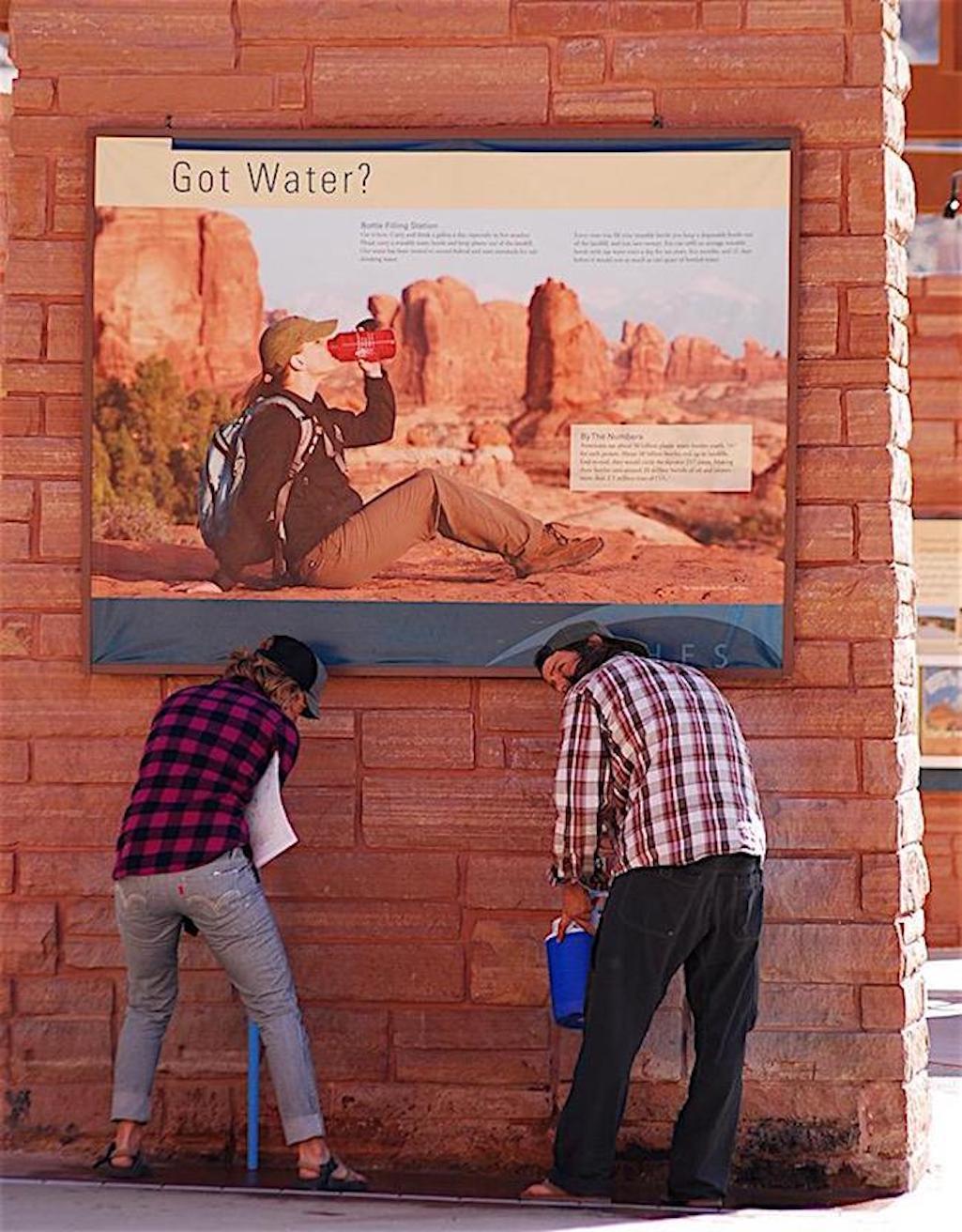
The Biden administration called Wednesday for the removal of single-use plastics from national parks by 2032/Kurt Repanshek file
The White House announced on Wednesday that the Department of the Interior will reduce and eventually phase out the sale of single-use plastic products in U.S. national parks, wildlife refuges, and other public lands. The news comes after more than 300 organizations and nearly 70,000 individuals called on the Department of the Interior to take action.
To mark World Oceans Day 2022, Secretary of the Interior Deb Haaland issued Secretary’s Order 3407, which initiates a plan “to reduce the procurement, sale, and distribution of single-use products and packaging.” The order is also designed to phase out all single-use plastic products across Department-managed lands by the year 2032.
NGOs Applaud the Move, Push for More Urgency
Many NGOs had an overwhelmingly positive reaction to today’s news, however, they reiterate the urgency of the situation and encourage the Department to move as quickly as possible.
“Today we celebrate this win and we applaud Secretary Haaland, Director Sams, and the Department of the Interior for their commitment to protecting our U.S. National Parks from plastic pollution. We will continue working with our coalition members and partners to push for these changes to happen even more quickly, because plastic pollutes at every stage of its existence. In addition to trashing beautiful landscapes, the production, transport, and disposal of plastic disproportionately impact BIPOC, low-income, and rural communities. Plastic and its toxic chemicals have no place in a more just, equitable future.” –Julia Cohen, MPH, Managing Director, Plastic Pollution Coalition
The Action Follows Months of Campaigning by Diverse Coalition Partners
The campaign that led to this moment has been ongoing since last summer. In July 2021, a diverse group of more than 300 nonprofits, organizations, and businesses sent a letter to U.S. Interior Secretary Deb Haaland urging her to direct the National Park Service to eliminate the sale and distribution of polystyrene-foam products and single-use plastic bottles, bags, and foodware (including cups, plates, bowls, and utensils) in national parks.
Plastic Pollution Coalition hosted a webinar in August 2021 about the National Parks campaign, and several NGOs also collaborated on a recent action allowing people to send letters to U.S. Representatives and Senators asking them to sponsor the Reducing Waste in National Parks Act (S.2960/H.R.5533). More than 8,000 letters were sent. There was also an ask to members of Congress during National Parks Week (April 16–24) 2022 to make national parks plastic-free spaces.
The National Park Service reports managing nearly 70 million pounds of waste per year, much of it plastic. Presently, about 400 million metric tons of plastic are produced globally each year, and only a small fraction is recycled—just five to six percent in the United States. The majority of plastic that is produced ultimately ends up in landfills and the natural environment—including in the oceans. In nature, plastics rapidly break up into tiny pieces known as microplastics, which are toxic and easily ingested, inhaled, and absorbed into the bodies of people and other animals. Microplastics are widespread and harmful, polluting Earth’s air, soils, waters, oceans, and many plants.
National Parks cover more than 85 million acres in every state, the District of Columbia, American Samoa, Guam, Puerto Rico, and the Virgin Islands and attract nearly 300 million visitors per year. By eliminating plastics from National Parks, the U.S. government is improving its stewardship of culturally and environmentally important lands. Such protection will better sustain future generations of people and important ecosystems.

 Support Essential Coverage of Essential Places
Support Essential Coverage of Essential Places







Comments
Finally! About time.
Another step in the right direction. Slow, but with support from all of us, steady.
Why not next year? Nationwide as well. Recycling of plastics is a scam.
"the production, transport, and disposal of plastic disproportionately impact BIPOC, low-income, and rural communities. Plastic and its toxic chemicals have no place in a more just, equitable future."
Or how to destroy your credibility with just two short sentences.
Meaningless
So in ten years we will have to bring our own single-use plastics into the parks? This will eliminate plastic from the environment? This is how NPS protects our parks?
Actually, Bob, in ten years, how about bringing in a reusable water bottle? I think that's probably the idea here, and it's really not a bad one. Hey, the Traveler even has a water bottle you can choose from upon making a donation: https://www.nationalparkstraveler.org/donate
Rebecca, You seem to miss my point. This highly touted legislation actually does virtually nothing in 2032. Yes, we should all be good citizens and save the planet. I predict it will be mostly uninhabitable by 2050 at the rate we are going. And yes, starting in ten years I will definitely bring in a reusable water bottle.